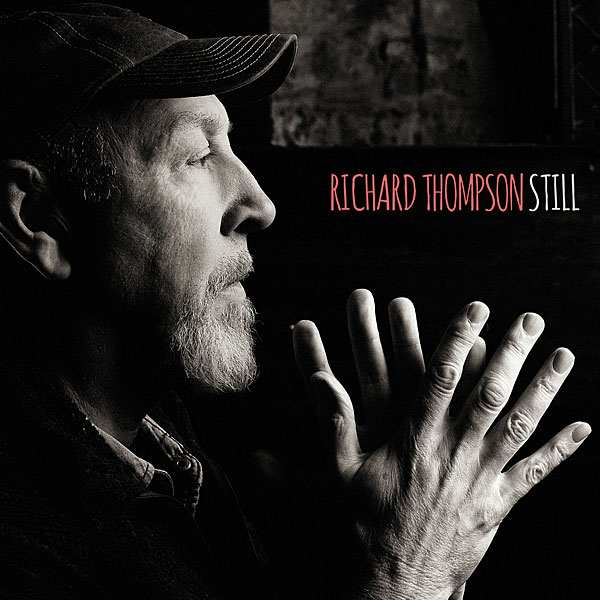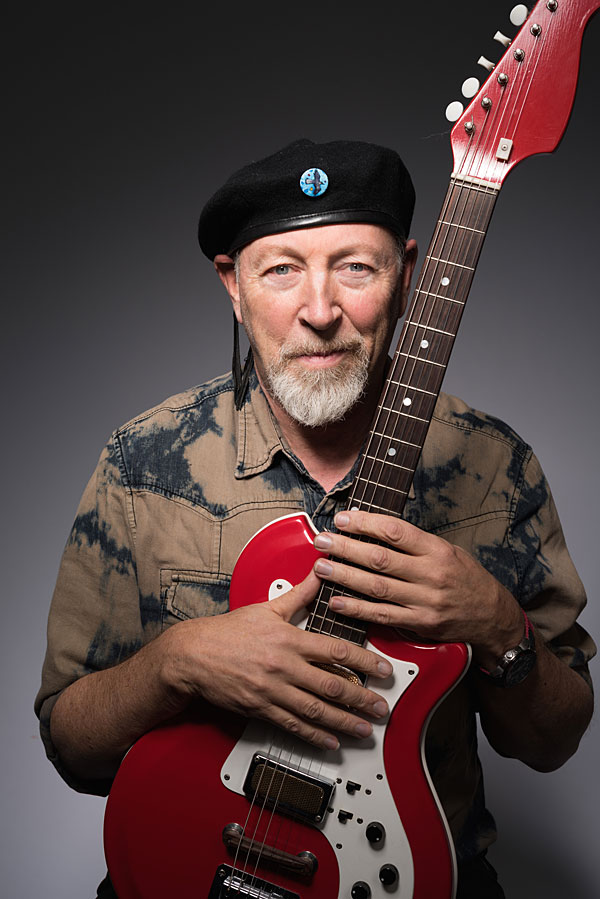| Columns Retired Columns & Blogs |
Uncanny- I just bought this CD today and will spin it later tonight.
Excellent review and interview of RT. Thank You.
"At the same time, Mitchell was producing Crowded House, and it wasn't that different from a Crowded House production. It wasn't that different from other stuff going on at Capitol anyway. It's just where I was at the time. I think there's good stuff there, and I think there's stuff where I'd love to go back and tweak it."
"In a recent interview, you spoke of songs as being 'little capsules of emotion.'"
"Did I say that? What was I thinking? Please don't ask me to explain."
"Are they still?"
"I think so, yeah. I think a song is that. It's a three-minute emotional immersion—it should be. At the end of the song, you kind of blink, and the lights go up, and okay, that's it, on to the next one. Different emotions. Different feeling. It's extraordinary how powerful songs can be, how important songs are in people's lives, since Bob Dylan, for the last three generations anyway. But you could probably go back to World War II and say that as well. Your husband has gone off to war and you might never see him again. That music meant something too, and that's why, after the war, the music still had this huge emotional meaning for people of that generation.

"It probably goes back to Stephen Foster, and hundreds of years of folk music, when a traditional song served many more functions. It was the news. It was about the latest battle. It was about what the lords in the manor up on the hill were gettin' up to: about the incest and whatever. It was a simple love song. And it was a song of social injustice. So you had all these emotions in this package. To an audience, who would be sittin' in a pub or something, and this would also be entertainment, for you'd be singing songs for each other. You can't say it was more important then than now however, because these days people are out with their iPods on, and what they're listening to is the soundtrack of their lives. I notice, with my kids, they don't say 'I'm listening to music,' they say 'I'm listening to my music.' So you choose this, this, and this off the endless menu. Songs speak for you, answer for you, say what you can't quite articulate."
Still includes a number of songs that will soon take their rightful places as classics in the proud Thompson canon, and none more rightfully than the admittedly gimmicky "Guitar Heroes," which reprises quotes from such famous string wonders as Les Paul, Hank Marvin, and Django Reinhardt, and has already become a staple of Thompson shows.
"It's not an original idea. I think it starts with a record by Thumbs Carlisle: He played the guitar flat. He did a record called 'Springfield Guitar Social' in the '50s, where he apes all the Nashville guitarists, like Chet [Atkins] and also Les Paul. Brilliant.
"We recorded all of a piece, we did it as one thing, because we didn't want to chop it about every time we changed rhythm. We wanted to play through it, so I did it all acoustic. And then I thought I should really have more signature sounds going, so we kept Django acoustic. For some reason, I kept Les Paul acoustic as well—I think I just liked what I played. But that should have been on a Les Paul."
For a guitarist forever associated with Fender Stratocasters, which Thompson has played since the beginning, recording "Guitar Heroes" was a chance to play other axes.
"At Tweedy's loft there's a large selection of guitars. Hundreds, hundreds of guitars. So you want a Les Paul? Well, what year do you want: '57? '69? What color? So that was easy. You know James Burton? Maybe a '50s Tele? Oh, that one up there. Just to get those sounds. Chuck Berry—a Super 400 Gibson or something like that. So that was fun, yeah. It's kind of a modular song, so if you get tired of the chords that you're playing, you can switch to other tunes by the same guitarist, or you can switch guitarist for guitarist.
"It's not original, but it's fun to do and can be adapted forever. I'll be living on this until I retire. I might want to get a little Charlie Christian in there? You could get Scotty Moore in, or something. Maybe Joe Pass—but then you try and play like Joe Pass, and good luck."
Another tune on Still meant to evoke a smile is "All Buttoned Up," in which an ardent suitor is making little progress in the arena of physical pleasures: "She wouldn't let me in / Frothing at the mouth and barking / on all fours like Rin Tin Tin."

"It's kind of slapstick. It's very much in the tradition of what in the UK they call the music hall, which was kind of variety theater. Like 1830 to 1930. Fantastic singers and comedians. People like Gracie Fields and Stanley Holloway were kind of the end. George Formby. 'I can't get away to marry you today, my wife won't let me.' It's very much in that spirit. It's kind of the battle of the sexes, but in a benign environment, a safe environment, a nonjudgmental environment, I hope. My wife likes that song, and she usually tells me if I'm being a sexist pig, so I hope I passed the test."
Thompson is also, thankfully, still writing rock tunes, which on Still are represented by "Long John Silver."
"I have a kinda subgenre [of songwriting], which is sort of Pirate Rock, if you like. There's a certain kind of traditional English tune any one of which could be the soundtrack to a pirate movie: 'He hums a jaunty tune!' It's got those kind of pentatonic tunes that we associate with the blues, but actually there's an English mode as well. And it has that kind of D–to–C-natural thing, that Scottish kind of chord change. 'Long John Silver,' to me, is that kind of thing with a kind of Rolling Stones mentality in the rhythm track. I know who it's about. It's someone who owes me quite a lot of money."
Every songwriter has his or her established modes, and Thompson's best may be the love song. From worshipping motorcycles in "1952 Vincent Black Lightning" to hellcat girlfriends in "Valerie" to the fatal attraction and inevitable heartbreak of "Keep Your Distance" (memorably covered by Buddy and Julie Miller), Thompson has spent a career on this most ancient of song forms. On Still he adds "She Never Could Resist a Winding Road." He's the master of the bittersweet love song.
"That's the best kind, right? If you're gonna be a realist, then love is bittersweet. You can be all romantic-and-flowers about love, and that's a syrupy kind of love song. But often, you love someone in spite of: Even though you do that, I still love you. Even though you're not a perfect human being, I love you. You have to write songs that reflect that, I think. 'She Never Could Resist a Winding Road'—there is someone very close to me who is just like that. They've just got itchy feet. So I get home off the road, and 'At last, you're home. Now we can go somewhere.' And I sort of love it. I love the spirit of it. The wanderlust."
"How, at 66, still spending much of the year on the road the world over, do you manage to keep your songwriting productivity so high?"
"Well, the songs are three minutes."
"You still gotta write 'em."
"Yeah. The difficult thing is to write songs you haven't written before, and I don't perfectly do that. I do overlap. But what I tell myself, in defense of my own argument, is that I'm actually writing in a style, a genre, that didn't exist before. It's somewhere between popular music, or rock music, and traditional music from a UK perspective. Something that the Band did very well was to synthesize all the traditions of America and write new songs that sounded like they came out of that tradition. So I try and do the same thing. In a sense, I'm still trying to establish a vocabulary, and I'm hoping other people will take this vocabulary and use it to build their own tradition, because Britain needs that tradition. And what we were doing in Fairport was trying to reconnect that tradition, and I'm still trying to do the same thing."
"And you still have lots of relevant, full-blooded things to say!"
"Except in interviews. I'm just completely dried up. Nothing. Nothing left. Drained. Dead."

Uncanny- I just bought this CD today and will spin it later tonight.
Excellent review and interview of RT. Thank You.